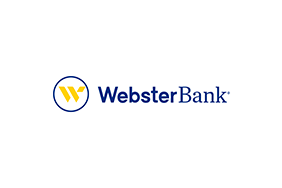Webster Bank Corporate Responsibility Report: Environmental Sustainability
We believe that our focus on environmental sustainability provides a strategic benefit by reducing costs and improving operational efficiencies.
Published 08-17-23
Submitted by Webster Bank

Originally published in Webster Bank's 2022 Corporate Responsibility Report
We continue to advance plans to create further efficiencies in our operations and reduce our emissions, including increasing the amount of green energy used for our facilities. Across our footprint, we seek to maintain low-emission and energy-efficient working environments.
We recognize the importance of the transition to renewable energy and have been working to increase our use of renewable power. In 2022, we purchased renewable energy certificates, known as RECs, in our New York market to offset our energy consumption. RECs are certificates that represent the environmental attributes related to generating one megawatt-hour (MWh) of electricity from renewable sources and guarantee that equivalent energy was produced using renewable sources and added to the electricity grid. Accordingly, we partnered with Green-e to invest in these projects to address our emissions from our operations for December 2022 through December 2026. By purchasing these RECs to match 100% of our annual usage (4.69 MWh), we are taking meaningful climate action and expect to grow our program in 2023 and beyond.
Webster has undertaken a number of initiatives designed to reduce our impact on the environment and to promote environmentally friendly projects and practices, such as continued digitization of administrative and operational tasks. We are also working to identify and onboard software tools to help us track and manage emissions more effectively.
In 2022
- Encouraged environmentally friendly work practices by supporting recycling and reuse, and by continuing to install energy efficient equipment and systems throughout our network
- Retrofitted 13 branches with energyefficient lighting fixtures, with an energy savings of 248,627 kWh
- 150 solar arrays in service
- Reduced carbon emissions by nearly 1,200 metric tons
- Increased the use of e-records and e-signing technology resulting in reductions in paper waste and carbon emissions
- Focused on process improvements to facilitate standardization and efficient production, which reduces material consumption and waste
We further extend our commitment to the communities we serve by financing commercial loans with companies involved in renewable energy, environmental remediation and energy-efficient components. In 2022, Webster Bank created or maintained commitments for approximately $661 million in loans for renewable energy, environmental remediation and energy-efficient components, primarily in Connecticut, as well as in Massachusetts, New York, Pennsylvania, Florida, Georgia, South Carolina and Washington D.C.
Co-led by our Chief Risk Officer and Chief Credit Officer, we continue to develop and refine our risk management framework for measuring and managing climate-related physical and transition risks that could impact the bank’s operations and loan portfolio.
To learn more about Webster Bank’s commitment to corporate responsibility, visit our CR webpage.
For full details about Webster Bank's 2022 Corporate Responsibility Report, visit here.

Webster Bank
Webster Bank
About Webster
Webster Bank (“Webster”) is a leading commercial bank in the Northeast that provides a wide range of digital and traditional financial solutions across three differentiated lines of business: Commercial Banking, Consumer Banking and Healthcare Financial Services, one of the country's largest providers of employee benefits and administration of medical insurance claim settlements solutions. Headquartered in Stamford, CT, Webster is a values-driven organization with $76 billion in assets. Its core footprint spans the northeastern U.S. from New York to Massachusetts, with certain businesses operating in extended geographies. Webster Bank is a member of the FDIC and an equal housing lender. For more information about Webster, including past press releases and the latest annual report, visit the Webster website at www.websterbank.com.
More from Webster Bank

